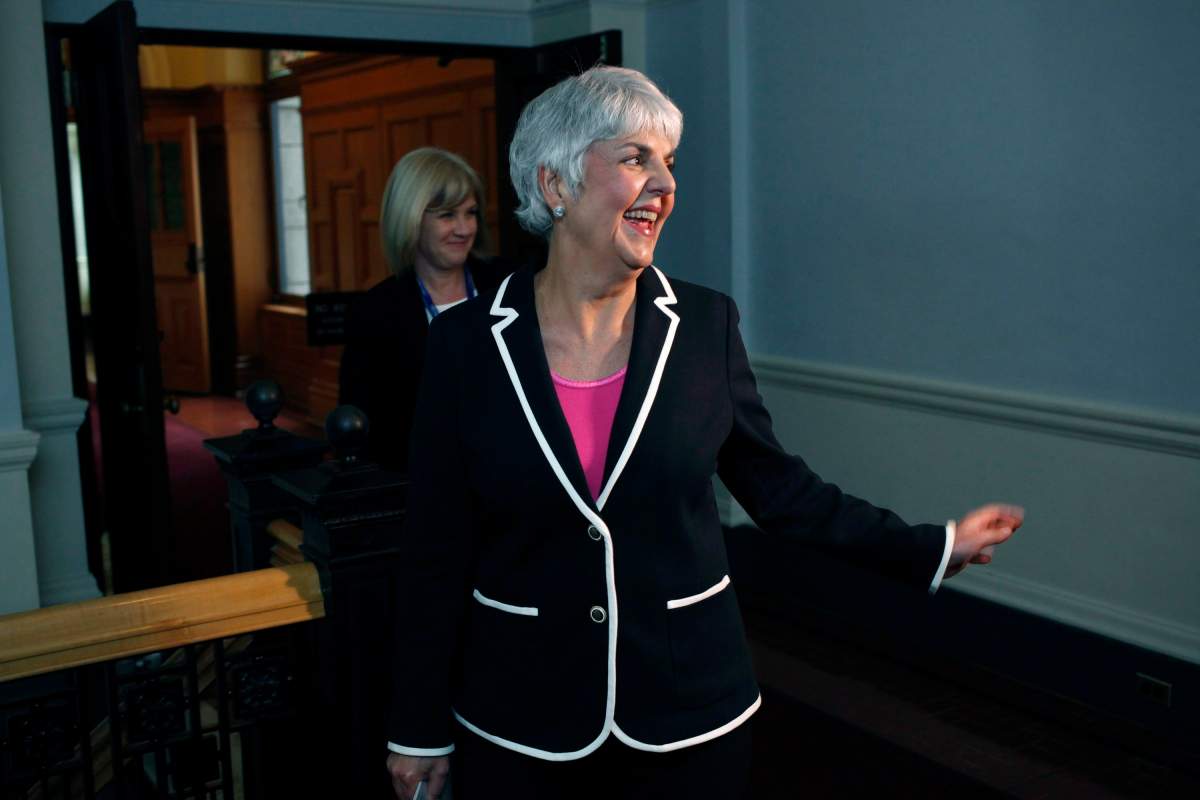The B.C. government won’t bring any “relief” to municipalities that are concerned over the increased costs associated with the province’s payroll tax, which is being brought in to replace Medical Services Plan premiums.

Finance Minister Carole James said most British Columbians will be better off — even if municipalities have to increase property taxes to cover the costs.
“They aren’t going to get any relief. It is important to note they are saving the 50 per cent and I think that is a critical piece to note and they will save the whole 100 per cent when we eliminate MSP in 2o2o,” said James.
“Some municipalities come out ahead and some have a bit more to pay.”
The BC NDP cut MSP premiums in half last fall and will rid them entirely in 2020. The province is putting a health payroll tax in place on Jan. 1, 2019 to pay for the lost revenues.
MSP will be gone on Jan. 1, 2020.
READ MORE: B.C. Government ignores advice from MSP task force, brings in payroll tax
Businesses with payrolls of more than $1.5 million will pay a tax rate of 1.95 per cent on their total payrolls.

Get daily National news
Any businesses with payrolls between $500,000 and $1.5 million will pay a reduced rate, and those with payrolls below $500,000 will not pay the tax.
WATCH HERE: B.C. municipalities will also have to pay the new payroll tax

The Union of B.C. Municipalities (UBCM) released a study on Friday that shows most it spoke with would see an increase in what they pay.
The City of Vancouver will be hit hardest, with expenses growing from $500,000 a year to pay for MSP in 2017, to $1.5 million per year to pay the payroll tax.
“The introduction of the employer health tax will lead to increased Medical Services Plan-related costs for a considerable portion of the local government sector,” the UBCM report read.
“While a small portion of local governments will see reduced MSP related costs once the employers’ health tax is implemented, the savings for most of these communities are negligible.”
Coquitlam Mayor Richard Stewart told CKNW’s Lynda Steele on Friday that the municipality would have to increase property taxes by 0.5 per cent to account for the increase.
James said increases like that would still not be enough to offset the benefits that come from doing away with MSP.
“Even if a municipality was in a position to look at a small increase you will still be seeing for families an $800 a year savings,” said James.
“The savings still far out weigh anything that would be an increase.”
Here are some examples of what municipalities paid for MSP in 2017 compared to how much they’ll pay in payroll tax once MSP is eliminated in 2020:
Burnaby: $2,302,000.00 (2017)/$3,300,000.00 (2020)
Cariboo RD: $83,000.00 (2017)/$105,000.00 (2020)
Creston: $45,000.00 (2017)/$54,000.00 (2020)
Dawson Creek: $195,825.00 (2017)/$259,009.00 (2020)
Fort St. John: $265,266.00 (2017)/$406,480.00 (2020)
Kelowna: $1,151,000.00 (2017)/$1,407,600.00 (2020)
Langley Township: $630,500.00 (2017)/$1,300,000.00 (2020)
Maple Ridge: $350,000.00 (2017)/$700,000.00 (2020)
Mission: $268,000.00 (2017)/$365,650.00 (2020)
New Westminster: $706,200.00 (2017)/$1,483,400.00 (2020)
Oak Bay: $167,099.00 (2017)/$367,454.00 (2020)
Penticton: $380,704.00 (2017)/$404,501.00 (2020)
Port Coquitlam: $340,000.00 (2017)/$630,000.00 (2020)
Prince George: $667,358.00 (2017)/$1,371,504.00 (2020)
Saanich: $417,420.00 (2017)/$1,820,000.00 (2020)
Vancouver: $5,000,000.00 (2017)/$15,000,000.00 (2020)
Victoria: $800,000.00 (2017)/$1,900,000.00 (2020)
Williams Lake: $113,059.00 (2017)/$143,176.00 (2020)








Comments
Want to discuss? Please read our Commenting Policy first.